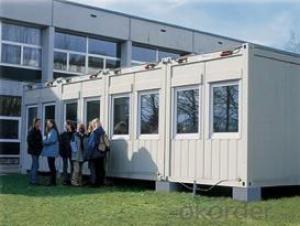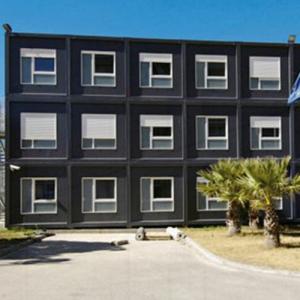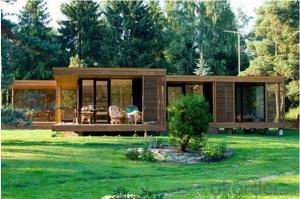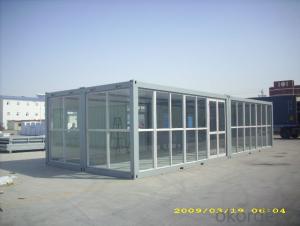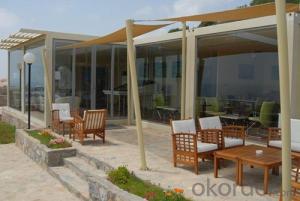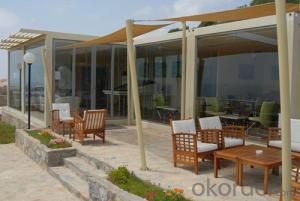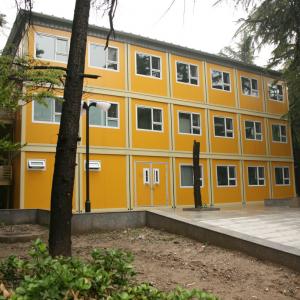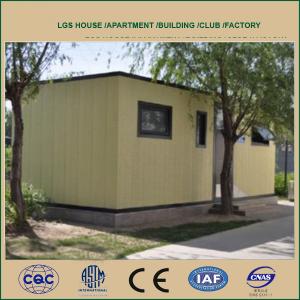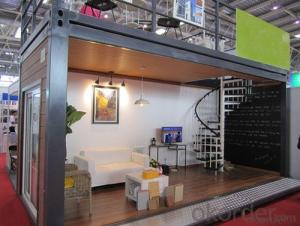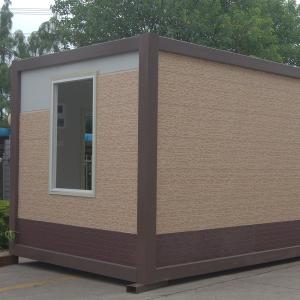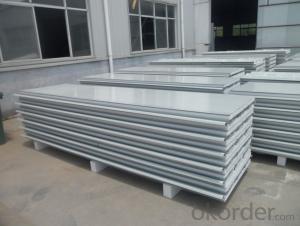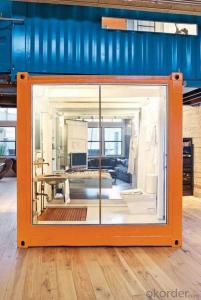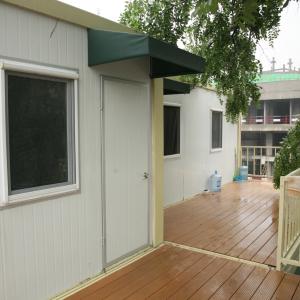High quality decorated container house for Dormitory
- Loading Port:
- China Main Port
- Payment Terms:
- TT OR LC
- Min Order Qty:
- -
- Supply Capability:
- -
OKorder Service Pledge
Quality Product, Order Online Tracking, Timely Delivery
OKorder Financial Service
Credit Rating, Credit Services, Credit Purchasing
You Might Also Like
High quality decorated container house for Dormitory
Specification

Production Process
Frame
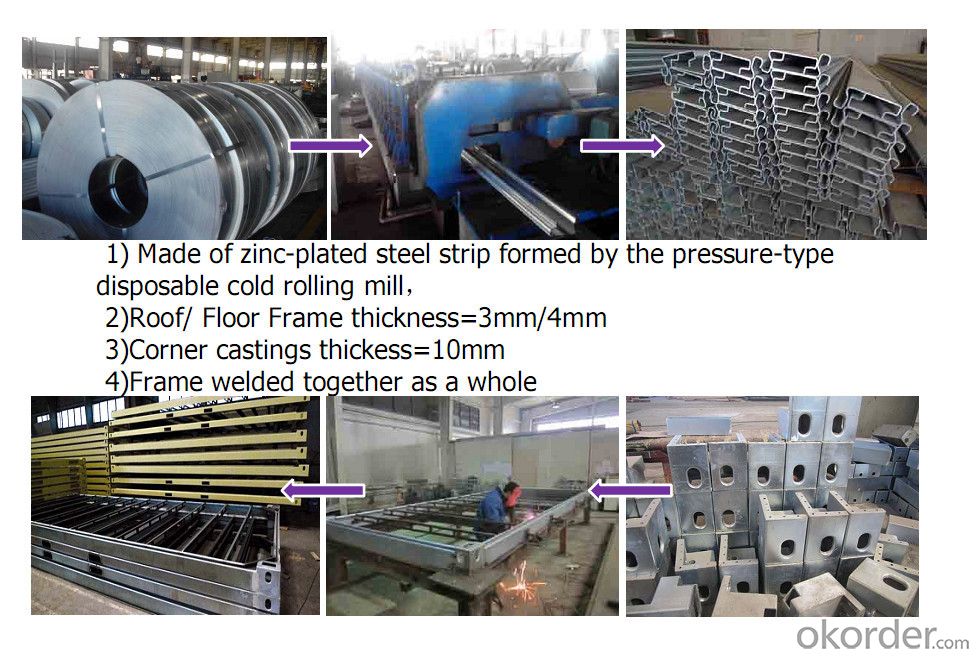
Floor
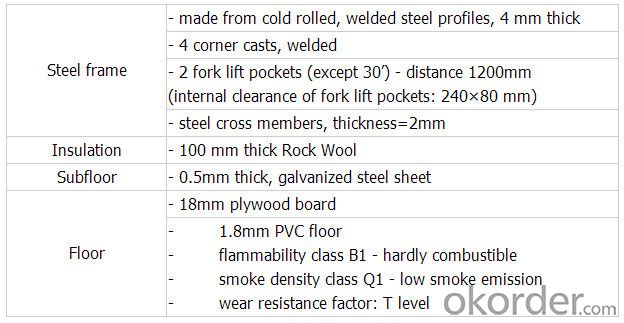
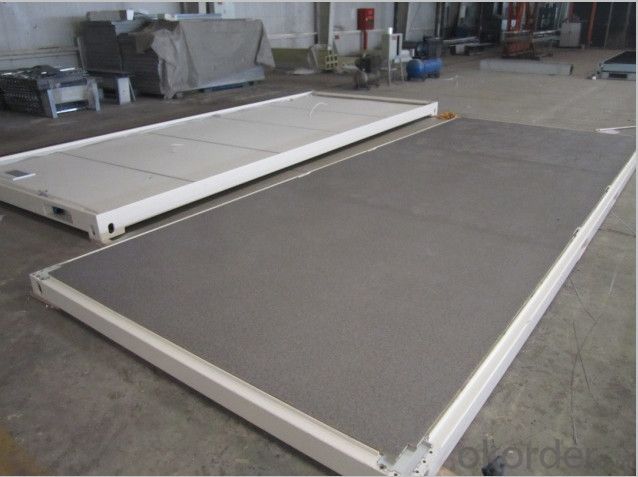
roof
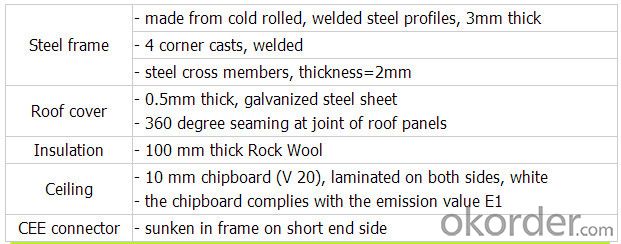
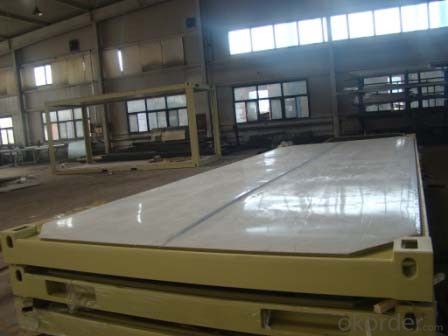
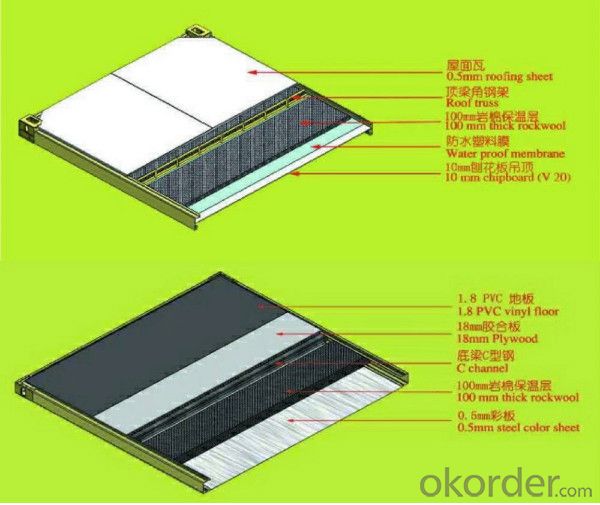
Window
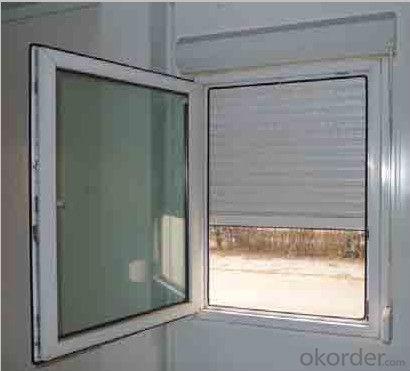
Door
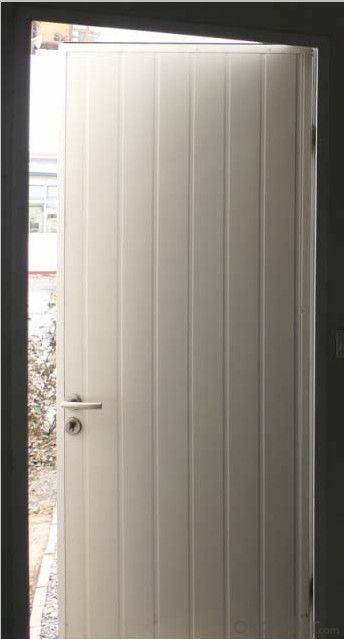
Layout
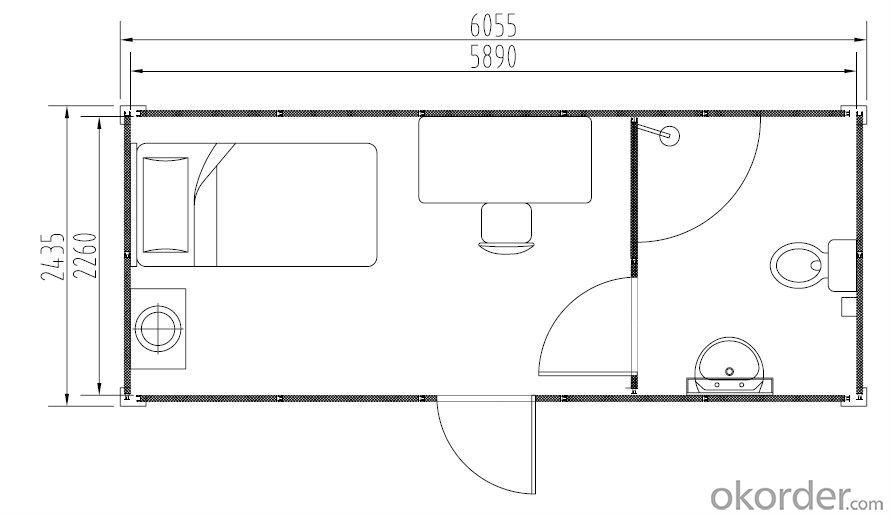
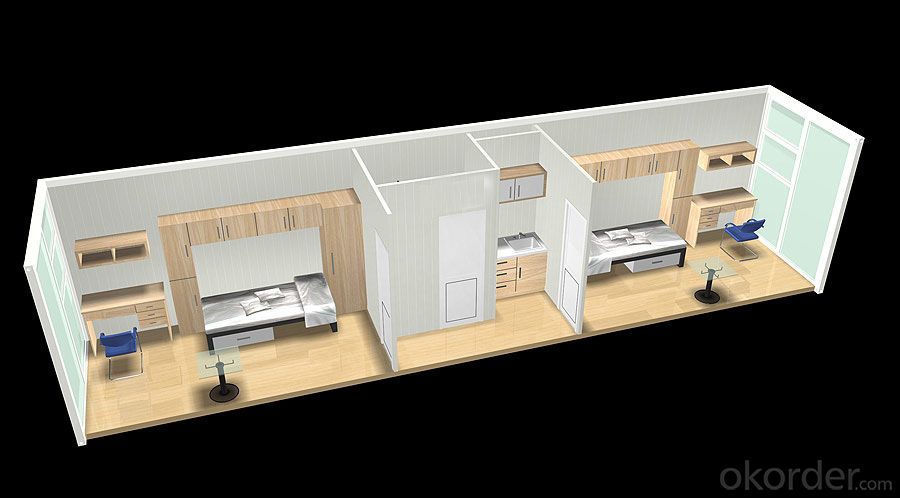
Application
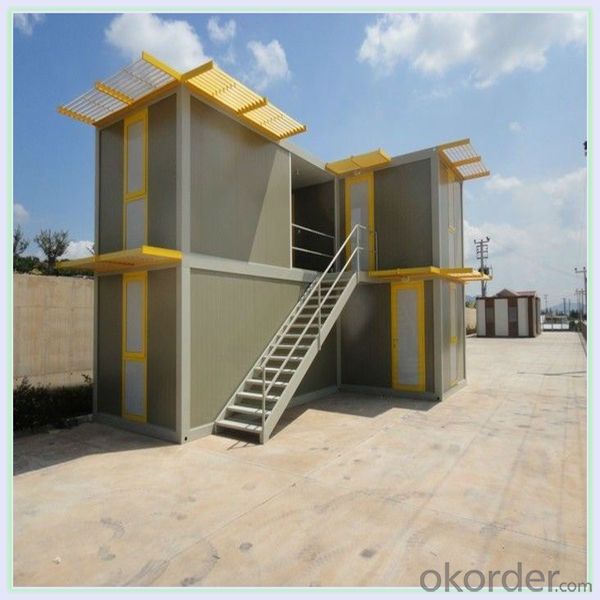
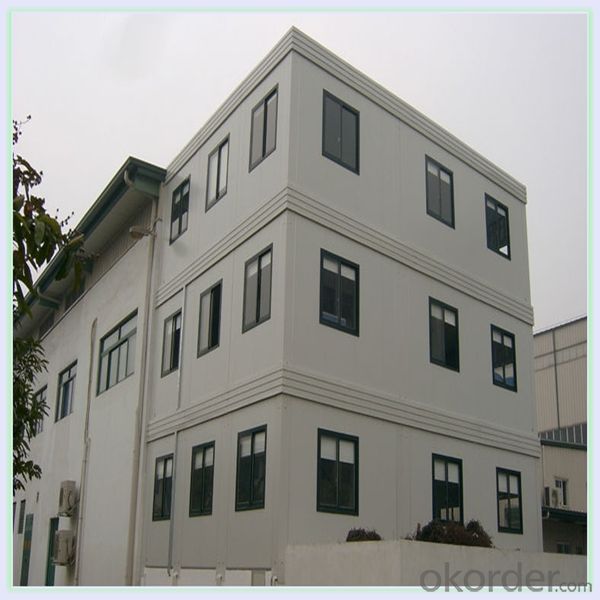
we also have prefab villa house
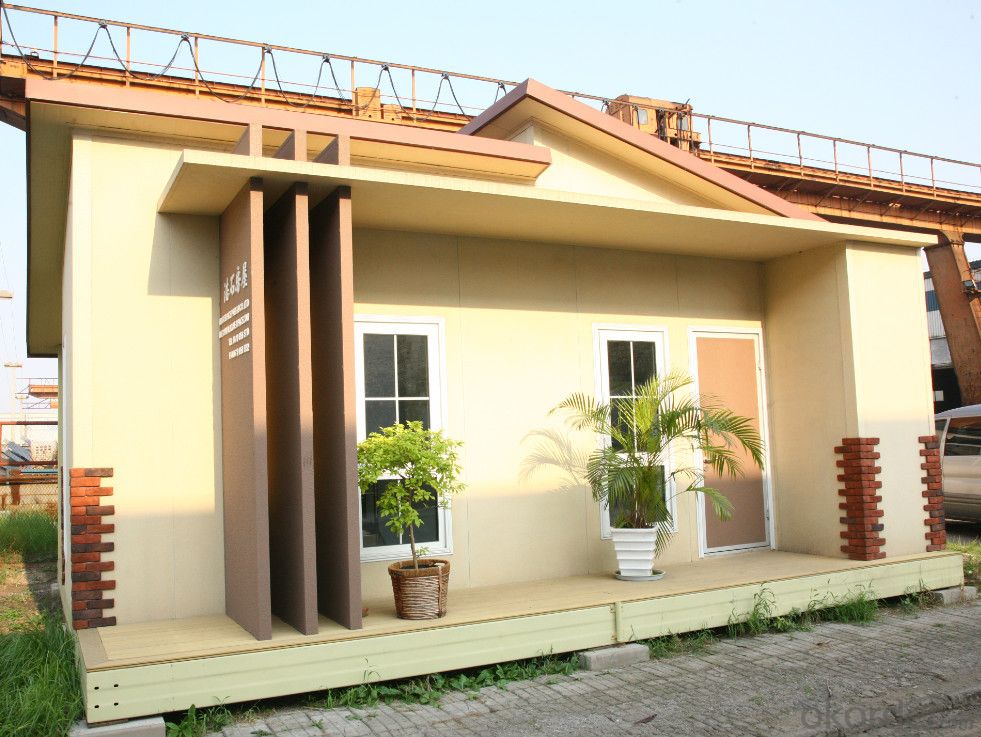
- Q:Can container houses be designed to have a separate home office space?
- Yes, container houses can be designed to have a separate home office space. Container houses are versatile and can be customized to meet specific needs and preferences. By strategically planning the layout and design, it is possible to create a dedicated area within the container house that serves as a home office. This can be achieved by partitioning a section of the container, adding doors or walls for privacy, and incorporating necessary amenities such as electrical outlets, lighting, and internet connectivity. Additionally, container houses can be expanded or modified by connecting multiple containers, allowing for even more flexibility in creating a separate home office space.
- Q:Are container houses suitable for artist residencies?
- Yes, container houses can be highly suitable for artist residencies. Container houses offer several advantages that make them a great option for artists looking for a space to live and work in during their residency. Firstly, container houses are affordable and can be easily customized to meet the specific needs of artists. They provide a cost-effective alternative to traditional housing options, allowing artists to allocate more of their resources towards their artistic pursuits. Secondly, container houses are highly flexible and can be easily moved or transported to different locations. This makes them ideal for artists who want to experience different environments and seek inspiration from diverse settings. Artists can engage in residencies in various locations without having to worry about finding new accommodations each time. Additionally, container houses are known for their sustainability and environmental friendliness. Many artists value sustainability and are conscious of their carbon footprint, making container houses a perfect fit for their ethos. These houses can be built using recycled materials and can incorporate green technologies, such as solar panels or rainwater collection systems. Furthermore, container houses offer a unique and unconventional aesthetic that can inspire creativity. Artists often search for spaces that facilitate their artistic process and provide an environment that sparks their imagination. Container houses, with their modern and industrial look, can serve as a blank canvas for artists to transform and personalize according to their artistic vision. Lastly, container houses can provide the necessary amenities and functional spaces needed for art creation. They can be easily modified to include spacious studios, ample storage, and living areas that can be adapted to accommodate various art forms. Artists can have everything they need within their living space, allowing them to fully immerse themselves in their work. In conclusion, container houses are highly suitable for artist residencies due to their affordability, flexibility, sustainability, unique aesthetic, and ability to meet the functional requirements of artists. These houses provide a conducive and inspiring environment for artists to live, create, and explore their artistic potential.
- Q:Can container houses be designed with a home workshop or craft space?
- Yes, container houses can definitely be designed with a home workshop or craft space. One of the main advantages of container houses is their versatility and flexibility in design. With proper planning and layout, it is possible to incorporate a designated area for a home workshop or craft space within the structure of a container house. Container houses can be modified and customized to cater to specific needs and preferences. The interior layout can be designed to include a separate room or section that can serve as a workshop or craft space. This area can be equipped with workbenches, storage shelves, tool racks, and other necessary equipment based on the specific requirements of the homeowner. Some container houses even feature double-height ceilings, which can be advantageous for accommodating larger equipment or machinery. The containers can be interconnected or expanded to create a larger workspace if needed. Windows and skylights can be strategically placed to allow ample natural light into the workshop or craft space, enhancing productivity and creativity. Additionally, container houses are known for their energy efficiency and insulation properties. This ensures a comfortable working environment, regardless of the weather conditions outside. Proper insulation, ventilation, and heating or cooling systems can be installed to maintain suitable temperatures and airflow within the workshop or craft space. In conclusion, container houses can be designed with a home workshop or craft space, making them an excellent choice for individuals who want to combine their living space with their hobbies or professions. The design possibilities are vast, and with careful planning and customization, a container house can provide a functional and inspiring workspace for creative pursuits.
- Q:Are container houses suitable for remote working?
- Indeed, remote working can be facilitated by container houses. The advantages of container houses for remote workers are manifold, encompassing flexibility, affordability, and sustainability. To begin with, container houses offer a great deal of flexibility, as they can be tailored to meet the specific requirements of remote workers. The interior can be designed in a manner that accommodates a dedicated workspace, complete with essential amenities such as a desk, chair, and storage for office supplies. Furthermore, containers can be easily adapted to include windows and skylights, guaranteeing adequate lighting and ventilation for a comfortable work atmosphere. Moreover, container houses are often more cost-effective compared to conventional houses or office spaces. The expense associated with purchasing and converting a container into a home office is generally lower than that of constructing or renting a separate office space. This affordability makes container houses an appealing option for remote workers seeking to reduce expenses and allocate their resources more efficiently. Lastly, container houses are renowned for their sustainability. Typically constructed from recycled materials, they have a reduced environmental impact in comparison to traditional construction methods. By opting for a container house for remote working, individuals can contribute to a more sustainable lifestyle and diminish their carbon footprint. Nevertheless, it is essential to take into account some potential drawbacks. Container houses may have limited space, which could pose a challenge for individuals in need of larger office setups or collaborative workspaces. Additionally, the insulation and noise reduction properties of containers may not be as effective as those of traditional buildings, which could impact concentration and productivity. In conclusion, container houses can be a suitable option for remote working owing to their flexibility, affordability, and sustainability. While they may have certain limitations, with appropriate customization and consideration of individual needs, container houses can provide an exceptional remote working environment.
- Q:Can container houses be built with a home theater or entertainment room?
- Absolutely, container houses have the potential to include a fantastic home theater or entertainment room. These houses offer great flexibility and can be tailored to suit the specific desires and requirements of the owner. By carefully strategizing and designing, a container house can easily incorporate a designated area for a home theater or entertainment room. The containers can be altered and expanded to generate a more spacious environment, while the interior can be properly insulated and soundproofed to heighten the visual and auditory experience. Moreover, container houses can be equipped with the necessary wiring and technology to support a home theater system, including audio equipment, projectors, screens, and comfortable seating arrangements. Regardless of whether one prefers a cozy nook or a fully immersive cinematic experience, container houses can be transformed into an ideal space for entertainment and relaxation.
- Q:What are the sizes of container houses?
- Container houses, also known as shipping container homes, come in various sizes. The most common sizes are 20 feet and 40 feet in length. A 20-foot container home typically provides around 160 square feet of living space, while a 40-foot container home offers approximately 320 square feet. However, these sizes can be customized and modified to suit individual needs and preferences. Some container houses utilize multiple containers to create larger living spaces. For instance, combining two 20-foot containers can provide around 320 square feet of living area, while three 20-foot containers can offer approximately 480 square feet. Additionally, container houses can also be stacked or interconnected to create multi-level or spacious designs. This allows for more flexibility in terms of size and layout, making it possible to create larger container homes or even container home complexes. Ultimately, the size of a container house depends on the number and arrangement of shipping containers used, as well as the customization and modifications implemented to suit specific requirements.
- Q:Can container houses be designed with underground storage or basements?
- Yes, container houses can be designed with underground storage or basements. The modular nature of container homes allows for flexibility in design and construction, making it possible to incorporate underground spaces for storage or basements. With proper planning and engineering, container houses can have underground additions to maximize space and functionality.
- Q:Can container houses be designed to have a traditional bedroom layout?
- Yes, container houses can be designed to have a traditional bedroom layout. By utilizing creative interior design techniques and maximizing the available space, container houses can incorporate all the essential elements of a traditional bedroom, including a bed, nightstands, dressers, and even a closet. Although container houses may have limitations in terms of size and shape, with proper planning and design, it is possible to create a comfortable and functional traditional bedroom layout within a container house.
- Q:Do container houses require permits for construction?
- Yes, container houses typically require permits for construction. The requirements for permits may vary depending on local building codes and regulations. In many jurisdictions, container houses are considered as alternative or unconventional forms of housing, and therefore, they may have specific regulations and requirements that need to be met in order to obtain the necessary permits. It is important to consult with the local building department or planning commission to determine the specific permits and approvals needed for container house construction in your area. This will ensure that your project is in compliance with all applicable regulations, building codes, and zoning restrictions.
- Q:Are container houses suitable for emergency shelters?
- Indeed, emergency shelters can benefit greatly from the suitability of container houses. Constructed using shipping containers, these houses possess qualities of durability, resistance to adverse weather conditions, and ease of transportation. Assembling them swiftly, container houses furnish a safe and secure living environment for individuals affected by natural disasters or conflicts. Moreover, customization options allow for the inclusion of basic necessities such as sleeping areas, sanitation facilities, and cooking spaces. In terms of cost-effectiveness, container houses prove to be a more viable alternative compared to traditional construction methods, particularly for emergency response organizations with limited resources. Notably, container houses can be reused and repurposed for future emergencies, demonstrating their environmentally conscious nature. All in all, container houses offer a practical and efficient solution for emergency shelters, providing temporary housing that is both functional and sustainable.
1. Manufacturer Overview |
|
|---|---|
| Location | |
| Year Established | |
| Annual Output Value | |
| Main Markets | |
| Company Certifications | |
2. Manufacturer Certificates |
|
|---|---|
| a) Certification Name | |
| Range | |
| Reference | |
| Validity Period | |
3. Manufacturer Capability |
|
|---|---|
| a)Trade Capacity | |
| Nearest Port | |
| Export Percentage | |
| No.of Employees in Trade Department | |
| Language Spoken: | |
| b)Factory Information | |
| Factory Size: | |
| No. of Production Lines | |
| Contract Manufacturing | |
| Product Price Range | |
Send your message to us
High quality decorated container house for Dormitory
- Loading Port:
- China Main Port
- Payment Terms:
- TT OR LC
- Min Order Qty:
- -
- Supply Capability:
- -
OKorder Service Pledge
Quality Product, Order Online Tracking, Timely Delivery
OKorder Financial Service
Credit Rating, Credit Services, Credit Purchasing
Similar products
New products
Hot products
Related keywords
